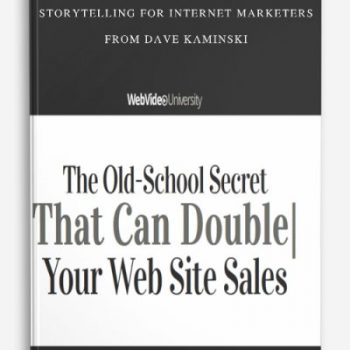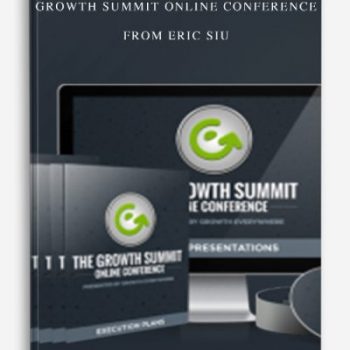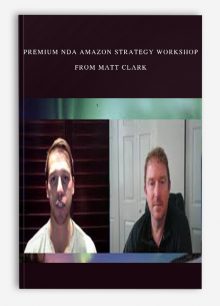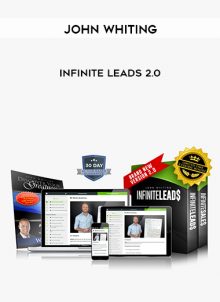
ConversionXL, Lucas Weber – Product Marketing For Technology
Description
Product marketing is your company’s best growth lever.
So why aren’t more marketers upskilling in this area?
From positioning to designing a measurable product launch, learn how to make product marketing a cross-functional powerhouse for your business.
Course Overview
Becoming a product marketing pro
The role of a product marketing manager is to act as the glue between marketing and product teams.
But navigating the ambiguity between two very different teams with unique (often competing) goals is never easy.
This course teaches you the skills needed to be a product marketing manager who builds alignment, wins sales and drives results.
What this course will teach you …
- How to coordinate a product marketing launch to drive leads, sales and customer retention.
- A framework for measuring and evaluating the effectiveness of product marketing on business growth.
- How to use battlecards, flowcharts, and competitor analyses to make data-driven decisions and get internal buy-in.
After taking this course, you’ll:
- Be able to build and launch high-impact product marketing launches for your company.
- Develop messaging and positioning frameworks that make your product stand out and win sales.
- Know how to turn product marketing into a conversion and sales engine for your company.
- Create high-converting content that aligns messaging with customer needs and values.
Sneak preview: Lesson 1
The Hybrid Role
Lucas has the ability to bridge the technical and non-technical world to make technical information consumable and easy to understand by non-technical people.
He is a really great person to work with and I highly recommend him.
This course is right for you if …
- You are considering a career as a Product Marketing Manager
- You already work as a Product Marketing Manager in a SaaS, B2B, or B2C company and are interested in upskilling to improve results.
- You already have many years of experience in the role and are looking for new inspiration and strategies.
This course is probably not for you if…
- You work as a developer or have little or nothing to do with marketing or sales.
Skills you should have before taking this course:
- Basic understanding of sales and marketing and their respective roles within the company.
- Basic understanding of the marketing funnel, lead nurturing, customer retention, and developing marketing campaigns.
- Basic understanding of product management and developers as well as your company’s chosen development methodologies and tools.
About your instructor, Lucas Weber
Lucas Weber began his career as a Software Product Manager until finding his calling as a Software Product Marketing Manager, which utilizes his talents for communicating development “tech talk” into marketing and sales messaging and for positioning a product for success in companies of all sizes.
Your full course curriculum:
PRODUCT MARKETING FOR TECHNOLOGY COMPANIES
The Hybrid Role
Lesson Objectives:
- Position yourself to receive and accept crucial information within your company which is a key element in building your product positioning and messaging
- Craft your storytelling through best practices to ensure that your message gets through to your target audience
- Bridge the gap between development, marketing, and sales within your organization
Topics covered:
- Communication
- Storytelling
- Public Speaking
- Leadership
- Hybrid Role
Marketing
Lesson Objectives:
- Align with the marketing team’s objectives and enable the team to reach them by supporting the marketing funnel
- Successfully build customer success/case studies based on four crucial elements
- Identify and ask the right questions when visiting prospects and customers to effectively build the right positioning and messaging for your products and to further empower your development team with valuable feedback
Topics covered:
- Define and differentiate the Product Marketing Manager’s role within Marketing
- Building Case Studies
- Visiting Customers & Prospects
- Internal Company Events
- Analyst Relations
Product Management and Development
Lesson Objectives:
- Define different types of product launches which are recognized across both product and marketing
- Organize and lead a product-focused marketing campaign from beginning to end
- Increase both sales and stickiness through different forms of in-product marketing
Topics covered:
- Development Methodology and Tools
- Product Launches
- Product-focused Campaigns
- Product Roadmaps
- Technical Support and User Groups
- In-product Marketing
Sales Enablement
Lesson Objectives:
- Distill important information into key learnings for a sales team
- Onboard employees of all business units through various exercises, workshops, and exams to ensure a solid start in your organization
- Setup and manage a scalable Learning Management System for standardized, interactive training sessions to ensure that everyone in your company is up to date on the latest product marketing information
Topics covered:
- Sales Team Structure and Goals
- Training
- Learning Management Systems
- Onboarding with Playbooks and Battlecards
- Continuous Learning
- Microlearning
Product Positioning and Messaging
Lesson Objectives:
- Create short and long versions of B2C and B2B buyer personas
- Map out the buyer’s journey and align it with sales enablement activities and material
- Conduct research on how to create your positioning by analyzing competitor positioning and by collecting feedback and insights from inside your company, prospects, and customers
- Create your product positioning and successfully deploy multi-layered messaging
Topics covered:
- Buyer Personas
- Buyer’s Journey
- Company Internal Research
- Competitor Positioning
- Prospect and Customer Research
- Creating your Positioning and Messaging
Working together with Lucas always results in a successful product launch or high quality material such as a video, white paper, press release, campaign or any other type of marketing collateral.
Lucas is very customer-oriented, creative, effective and professional. He is always able to both set a clear product strategy and reach the targets. He is also able to communicate and translate the product benefits extremely well to both technical and non-technical people, which was fundamental to our marketing team when creating high quality marketing material to support our sales.
Show off your new skills: Get a certificate of completion
Once the course is over, pass a test to earn a CXL certification.
Add it to your resume, your LinkedIn profile or just get that well-earned raise you’ve been waiting for.
CXL Institute is an authorized LinkedIn education provider
You can add your education, certificates, badges – everything you learned and earned at CXL Institute into the Education section of your profile
Get this course and 50+ others when you sign up for CXL Institute
This course are included with the CXL Institute subscription.
At CXL Institute, you can take online courses on growth, digital marketing, optimization, analytics, persuasion – all in a single subscription.
- World’s leading practitioners teaching you their best stuff.
- 50+ online courses on all things data-driven marketing
- New courses added every single month
Sign up for CXL Institute and get access to
- 50+ courses on all aspects of data-driven marketing (new courses added every month)
- 4 Minidegrees that give you advanced level skills
- Talk recordings by world class practitioners at CXL Live and Elite Camp
The CXL Institute guarantee:
- 7-day no questions asked money back period
- You can immediately apply learnings and improve your results.
Need help convincing your boss?
Business online course
Information about business:
Business is the activity of making one’s living or making money by producing or buying and selling products (such as goods and services).
[need quotation to verify] Simply put, it is “any activity or enterprise entered into for profit.
It does not mean it is a company, a corporation, partnership, or have any such formal organization, but it can range from a street peddler to General Motors.”
Having a business name does not separate the business entity from the owner, which means that the owner of the business is responsible and liable for debts incurred by the business.
If the business acquires debts, the creditors can go after the owner’s personal possessions.
A business structure does not allow for corporate tax rates. The proprietor is personally taxed on all income from the business.













tristian –
This is Digital Download service, the course is available at Coursecui.com and Email download delivery.